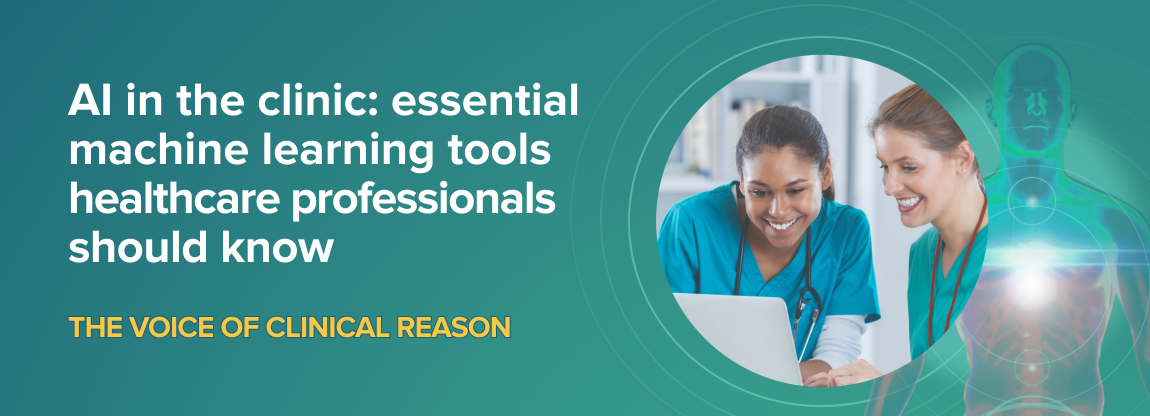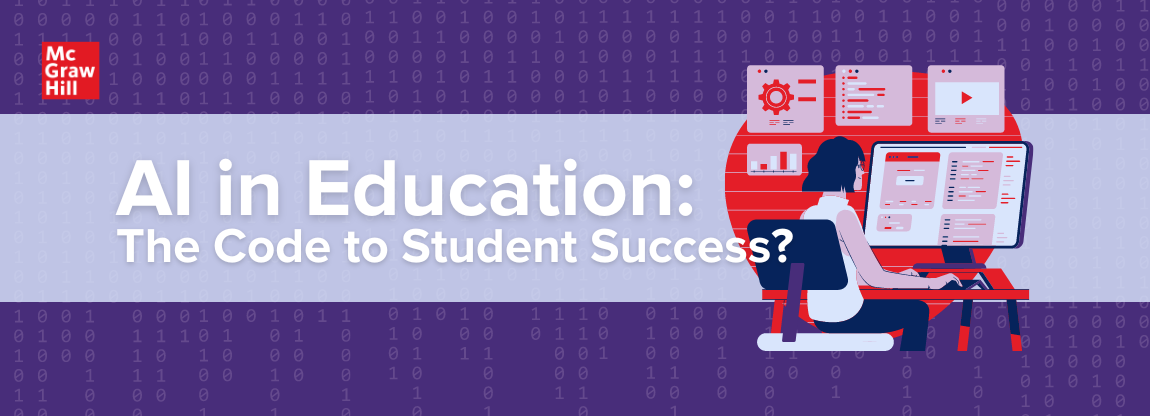HAL 9000’s ominous red eye has been synonymous with the phrase Artificial Intelligence (AI) since “2001: A Space Odyssey” first captivated audiences on the silver screen in 1968. In reality, AI technology is often more benign in practice, and is being used for the betterment of humanity in many areas, including higher education.
Artificial Intelligence refers to the development of computer systems that can perform tasks that would typically require human intelligence, such as problem-solving and decision-making. AI is powered by complex algorithms and models that allow machines to process and analyze large amounts of data, identify patterns, and make predictions or decisions based on that data without being explicitly programmed to do so – this is called machine learning.
While Arthur C. Clarke’s HAL 9000 may be a cautionary tale of the dangers of AI, everyday assistants like Alexa or Siri are much better suited to act as ambassadors for how AI can be harnessed. Recent advances have certainly made the technology more powerful and accessible, but AI has been around for decades and has been in use across various industries for just as long. Email spam filters, optical character recognition (OCR), and speech recognition technology are all forms of AI that have been in use since the 1990s. Many people also benefit from Artificial Intelligence daily and may not even realize it. Navigation software like Google Maps or Waze, Spell Check, Auto Correct, and even your banking institution’s mobile cheque deposit are all examples of current tools that use AI technology to improve its functionality, as well as your life.
In the higher education sector, AI has the potential to revolutionize the traditional classroom experience by providing educators with powerful tools to personalize learning, increase student engagement, and contribute to making education an equitable space. From virtual tutors to accessibility devices, AI is being leveraged to help students succeed at every stage of their academic journey.
AI as an Accessibility Device
AI can be a powerful accessibility device for students with disabilities, helping to level the playing field and ensure that all students have equal access to educational opportunities. For example, AI-powered text-to-speech software can help visually impaired students by reading course materials aloud, while speech recognition technology can enable students with mobility impairments to navigate their devices and access educational resources hands-free.
Additionally, AI chatbots can provide instant support and assistance to students with hearing or speech impairments, allowing them to communicate more easily with professors and peers. By leveraging the power of AI, universities can create a more inclusive and accessible learning environment that empowers students of all abilities to achieve their full potential.
Efficiency for Educators
AI-powered grading software can automate the grading process, freeing up instructors' time and allowing them to focus on providing more personalized feedback and support to students. Additionally, AI can assist instructors in passively identifying areas where students may be struggling, allowing them to tailor their teaching approach and provide targeted interventions to improve student outcomes.
AI can also assist instructors in designing more effective lesson plans and assessments, based on the analysis of student performance data. By using AI as a tool, instructors can work more efficiently and effectively, creating a more engaging and supportive learning environment.
24/7 Student Support
A discipline-specific chatbot is an AI-powered tool that can be used by educators to provide 24/7 support to students. These chatbots are designed to have expertise in a specific discipline or subject area, and can answer questions, provide feedback, and even offer personalized guidance to students. By using natural language processing and machine learning algorithms, these chatbots can interpret student inquiries and provide accurate and relevant responses, allowing students to receive immediate support and guidance outside of normal class hours.
This can be especially beneficial for online or hybrid courses, where students may not have as much access to face-to-face support from instructors or peers. By providing round-the-clock support, discipline-specific chatbots can help students feel more connected and supported in their learning journey.
Academic Integrity
AI tools can promote academic integrity within higher education by helping to detect and prevent instances of plagiarism and cheating. Existing plagiarism detection software uses machine learning algorithms to compare student work against a database of existing sources, flagging any potential matches or instances of unoriginal work. This can help instructors identify cases of plagiarism and take appropriate action to address the issue.
It's important to have open and honest conversations with students about academic integrity and ethical behavior. One approach is to emphasize the importance of critical thinking and problem-solving skills, rather than just memorization and rote learning. By focusing on these skills, educators can help students understand that the goal of education is not just to complete assignments, but to develop a deeper understanding of the subject matter and its real-world applications.
Additionally, educators can set clear expectations around the use of AI chatbots and other technologies, like requiring students to disclose any use of AI tools in their assignments and provide guidelines on how they can be used ethically and effectively. They can also emphasize the consequences of academic dishonesty and the importance of upholding academic integrity, both for the individual student and for the wider academic community.
Ultimately, by approaching the topic of academic integrity with transparency and open communication, educators can help students develop the skills and mindset needed to use AI chatbots and other technologies in a responsible and ethical manner, while still achieving academic success.
While the concept of AI can be intimidating, the reality is that AI-powered technologies have been making a positive impact on higher education for decades. We can take comfort in the fact that the AI technology of today, including ChatGPT, is a far cry from the fictional HAL 9000...for now.
Interested in learning more? Click here to register and join us for our upcoming webinar series “Debugging the Future”, where industry professionals will be providing research, real world examples, and answering your questions about the impact of AI in Higher Education.








